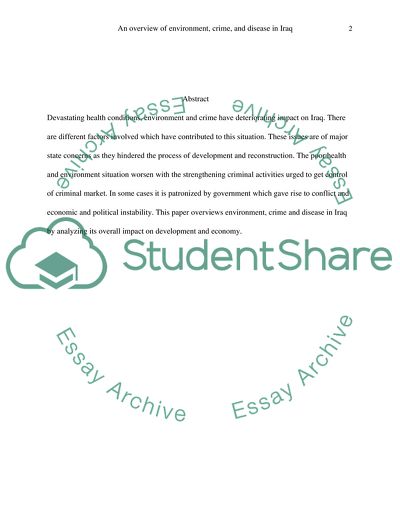Iraq : Environment, Crime, and Disease Research Paper. https://studentshare.org/politics/1731439-iraq-environment-crime-and-disease
Iraq : Environment, Crime, and Disease Research Paper. https://studentshare.org/politics/1731439-iraq-environment-crime-and-disease.


